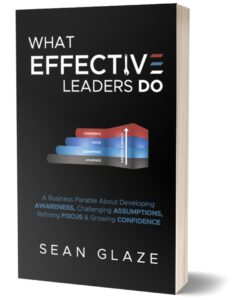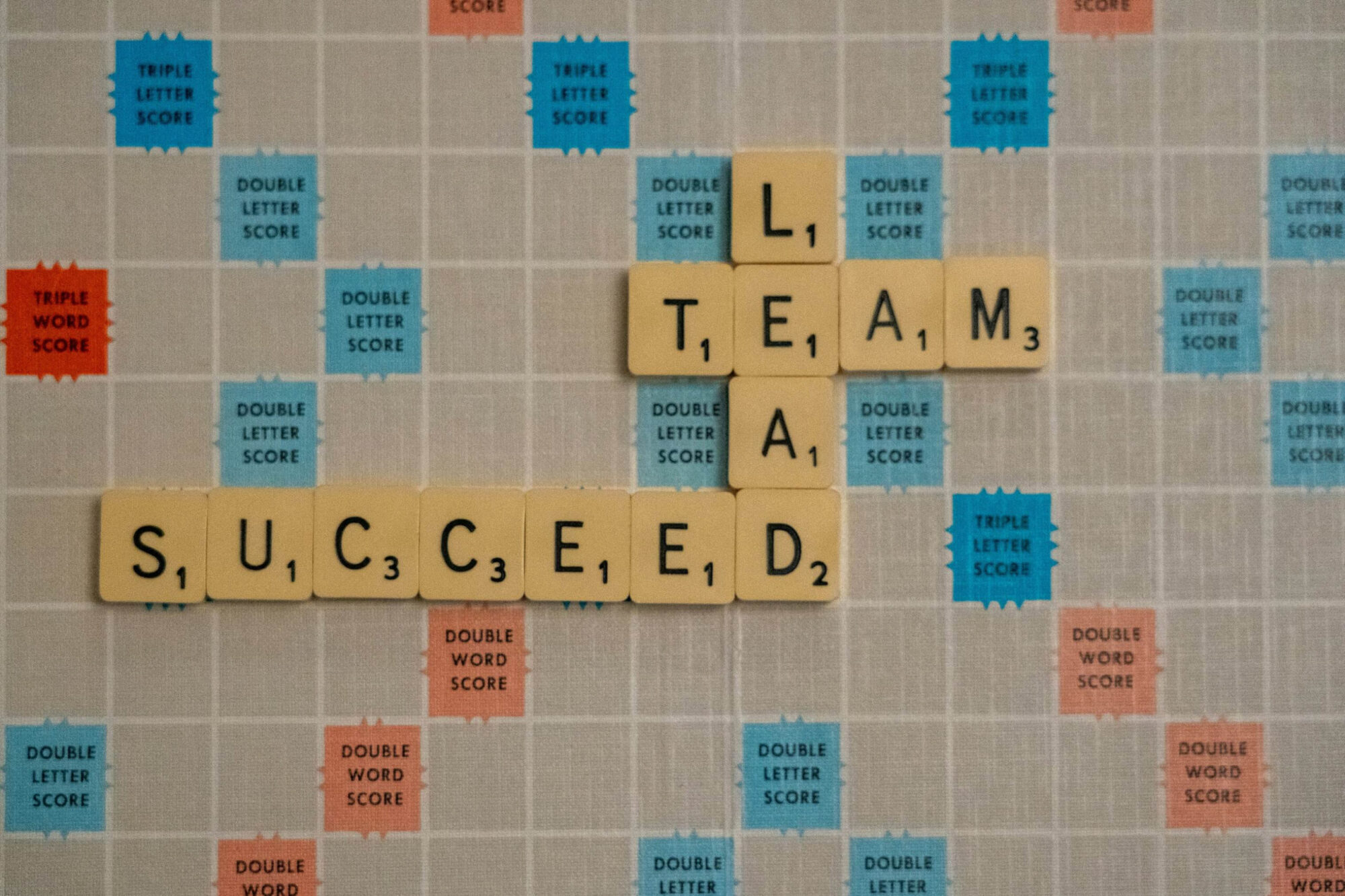How to Lead Effectively
Leadership isn’t about titles or personality—it’s about awareness. In What Effective Leaders DO, Sean Glaze shares a practical and engaging leadership fable that equips new managers to succeed through frameworks like the Ladder of Awareness and the Cycle of Culture. Told through the story of Jenn, a promoted engineer facing real-world leadership challenges, the book delivers simple but powerful lessons for becoming an effective leader, coach, and culture-builder.
What makes this book stand out is how clearly it demonstrates that effectiveness isn’t about charisma or credentials. It’s about awareness. The Ladder of Awareness. The Cycle of Culture. The Matrix of Interactions. These aren’t corporate buzzwords. They are tools leaders can actually use.
Sean Glaze, a former teacher, basketball coach, and now leadership speaker and team consultant, brings decades of coaching insight to this story. His lessons are simple, but not simplistic. That’s the mark of someone who’s lived what he teaches.
Jenn’s story feels personal and real. Is she based on someone you coached or mentored?
I was lucky enough to have a number of people pour into me as teaching or coaching mentors, and like Jenn I was always more willing to listen to good advice when I was struggling with the symptom of an issue I needed to be more aware of… I think we are all more coachable when circumstances humble us – my teams were always more willing to listen after a loss had uncovered the impact of ignoring important details.
You say effectiveness is the ultimate leadership destination. What made that insight click for you?
I think we all get distracted by things – whether it is the catchy title of a new process or framework – or the comfort of what has been acceptable previously. But, as I share with leaders often, our job is to adjust to the needs of our team members to meet them where they are and connect and influence based on their situation instead of stubbornly adhering to what we are comfortable with…
In the book, Tony introduces the “Ladder of Awareness.” Talk about why you started there.
I think that awareness is the catalyst for any change – in beliefs or behaviors. The problem is that we often sleep through the damage that is done by our neglect of or ignorance of issues that affect team performance. As a young coach, I was painfully ignorant of the impact that culture had on our team success. And once we see the damage (symptom) we are prompted to look for the cause… We become more effective as leaders or teammates not because of our years of experience, but because of what we notice in those experiences. Awareness is about noticing more – and is achieved by reflection, feedback, and coaching.
Culture is described as “a symptom of leadership.” I agree. How does a leader measure that symptom before it’s too late?
I would argue that culture is very simply the behaviors that are allowed and repeated in an organization. And those behaviors can be influenced by clarifying values and providing examples of what they look like in action (behaviors to emulate). But ultimately, it is a system that effective leaders are responsible for building to promote the behaviors that help team members thrive in their roles. What Effective Leaders DO actually leads into my next book (Rapid Teamwork) that outlines the five areas of culture that leaders must invest in to build a GREAT team (goals, relationships, expectations, accountability, and thanks)
What’s the biggest mistake you see first-time managers make?
I’ve found that most first time managers were promoted because they were very good in their role as an individual contributor. But that required very different skills that managing or leading people – and often results in micromanagement, lack of delegation, and leading with commands instead of curiosity and collaboration. I think most new managers (and many experienced managers) would benefit from better coaching and training to prepare for the shift in skills needed to be successful.
Can you explain how the “Cycle of Culture” builds—or destroys—a team?
 Yes – I believe that the cycle of awareness, beliefs, behaviors, and experiences can either be a downward spiral that creates toxicity and underperformance, or an upward spiral that inspires hope, progress, and overachievement. Every training program I facilitate is about inspiring more awareness of tendencies and influence on others so that team members shift the stories they are telling themselves about circumstances or coworkers – and that drives different behaviors, which then their team experiences and will interpret based on their awareness… The more we can replace unproductive beliefs and drive more positive behaviors and interactions, the more positive and productive a culture becomes.
Yes – I believe that the cycle of awareness, beliefs, behaviors, and experiences can either be a downward spiral that creates toxicity and underperformance, or an upward spiral that inspires hope, progress, and overachievement. Every training program I facilitate is about inspiring more awareness of tendencies and influence on others so that team members shift the stories they are telling themselves about circumstances or coworkers – and that drives different behaviors, which then their team experiences and will interpret based on their awareness… The more we can replace unproductive beliefs and drive more positive behaviors and interactions, the more positive and productive a culture becomes.
You introduce the “Matrix of Interactions.” What quadrant do most struggling leaders fall into, and how can they move?
I do a good bit of personality style assessment and discussion in my trainings, and this contributes to where leaders often find themselves on the matrix. Direct “lion” leaders are usually more pointed, and steady “golden retriever” leaders are usually more pleasant. The key, of course, is recognizing your tendencies to ensure that you focus on what will be most effective based on the person you are interacting with. And yes – with intention and practice, we can definitely change and be ore productive.
Why do so many organizations promote great individual contributors who aren’t ready to lead?
This is an interesting issue. As a coach, we never named captains on our team. You would like to have your most talented teammate be a leader and exhibit the interpersonal skills and work ethic that you wanted others to emulate – but that was not always the case. I believe that leaders usually separate themselves by demonstrating initiative and by being winning teammates, thinking about what the team needs rather than what is convenient or profitable only for themselves. And once someone demonstrates that mindset and desire to have a positive impact on something more significant than themselves, you give them more responsibility and opportunity… Promoting your best individual contributor to a leadership position is not always the right move. Not all great players can or want to be great coaches.
If a leader read your book and did just one thing differently tomorrow, what would you want that to be?
Find a leadership coach or mentor to help them question their assumptions and prioritize their focus! Short of that, I think the positive impact of daily reflection and seeking feedback and advice and the perspectives of others, so we are able to consider what they see that we do not, is invaluable for leaders as they seek to grow their impact and improve their results.
For more information and to obtain this book please visit What Effective Leaders DO.
Image credit: nick fewings


